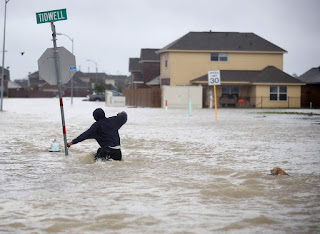The Federal Emergency
Management Authority (FEMA) announced June 1 as the official start date of the
hurricane season. Although no major storm has hit, the hurricanes will surely
come. In fact, the US National Oceanic and Atmospheric Association(NOAA) has predicted and Atmospheric 10-16 storms to hit this season, of
which 1-4 will be hurricanes of Category 3 or higher. Looking at what was seen with the hurricane
season of 2017, it is prudent to be well prepared for when the storms hit. How
can you do this?
Download FEMA app
FEMA has developed a smartphone app as a resource for information on how to prepare for a
storm, how to behave when one is happening, and what to do after the storm. The
app also receives weather predictions from the NOAA.
Know your threat
Different regions face
different threats from storms. Low lying areas are likely to be flooded,
forested areas will have falling trees, and open areas experience extreme wind
speeds. Knowing the kind of threat you will face from a storm is the first step
in preparing.
Have an evacuation plan
If you have to evacuate,
you will need the shortest and safest route out of the danger zone. Identify
these routes and practice the evacuation with the whole family to see the
practicality of the plan. Practicing ahead of time tells you if the plan is sound.
Gather your supplies
It is important to have a
‘Go bag’ for each person in the family as well as supplies for the whole family
including water, food and medicines. FEMA recommends following the five P’s
guideline when putting together disaster supplies. These P’s are People, Prescriptions,
Papers, Personal needs and Priceless items.
Prepare your home
Fortifying your house
gives it better protection against extreme weather, for example, permanent
storm shutters. You also have to prepare the area around the house, for
example, cutting trees and branches close to the house.
You can team up with your
neighbors to form a preparation team which ensures all homes are well prepared,
as well as the neighborhood e.g. clearing storm drainage.
Have your insurance in place
Ensure that your
insurance cover is updated. It is also good to talk to your insurance agent on
specific threats e.g. flooding damage if you have identified the most credible
threat.
Prepare financially
Unexpected damage can
always occur. It helps to have some savings to help you recover faster from a
disaster.
Cooperate with your
neighbors
Having a coordinated
response guarantees better safety for everyone. You can discuss the safest and
quickest evacuation routes, gathering points, and how to help the elderly and
disabled members of the community prepare as well.








